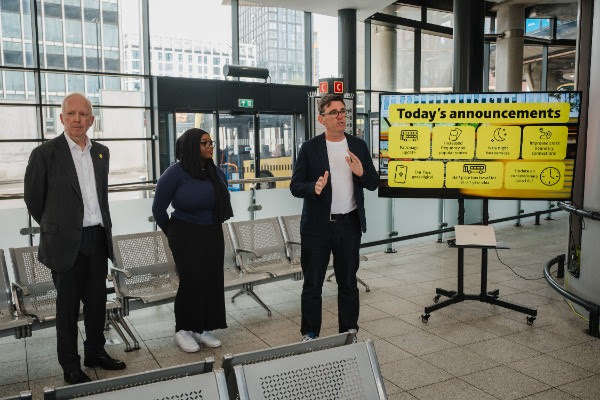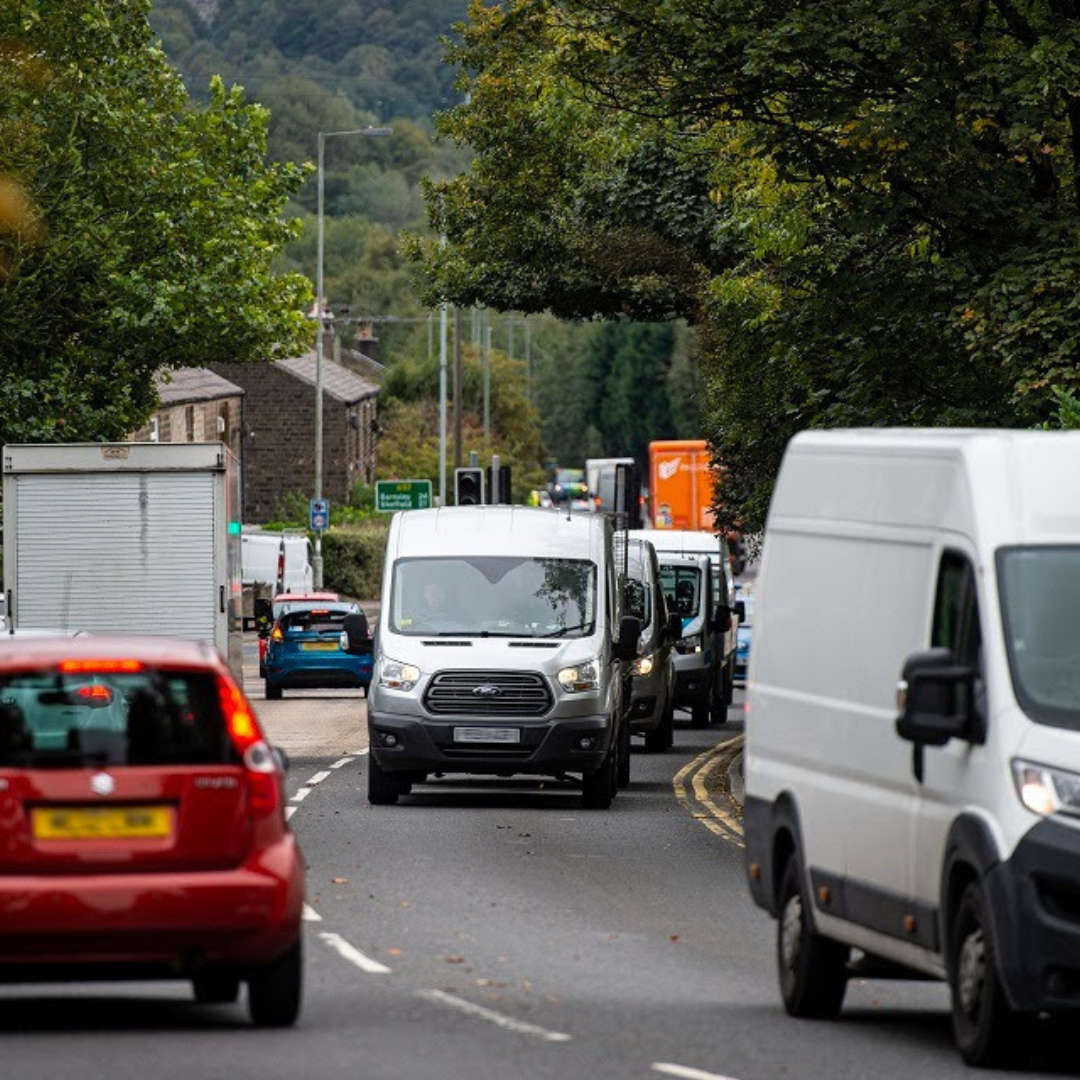
Andy Burnham announced seven major changes to the Bee Network this afternoon — promising more frequent services, new night buses, and cheaper travel for tens of thousands.
After taking every single Greater Manchester bus into public control over the last two years, transport chiefs say they are confident they can increase passenger numbers by 30pc by the end of the decade, having seen 12pc and 14pc surges in the areas of Greater Manchester to get Bee Network buses first.
Speaking at Shudehill bus station on Monday (September 1), the mayor added feedback from the public had driven the changes to keep encouraging more people to use public transport.
“While the Bee Network is already delivering a much improved service compared to the non-franchised system it replaced, with more punctual, frequent, affordable and cleaner buses, we are always looking at how we can improve the experience for everyone travelling with us, and to encourage people to use the bus more often,” he said.
“We are still only two years into this journey and these latest announcements underline our commitment to providing the best possible public transport system to support the people, communities and businesses which are helping to grow Greater Manchester’s economy.”
Here, the LDRS runs down the seven changes announced.
New night buses
Having extended the V1 and 36 buses to run 24-hours at weekends from the city centre to Leigh and Bolton respectively, Mr Burnham said Rochdale and Bury will soon see their own night buses.
He confirmed already-announced plans to run the 135 and 17/17a will go ahead, starting on Thursday (September 4).
Both services will run hourly from Shudehill Interchange at night, with the 135 heading to Bury via Prestwich and 17/17a going to Rochdale via Middleton.
Transport for Greater Manchester (TfGM) also confirmed after the event the V1 and 36 night services will run seven-days-a-week until March 2026.
More buses on the most popular routes in Bolton and Leigh
Extra services will also be put on in daytimes on major bus routes, namely the V1 from Manchester city centre to Leigh, and 582 from Leigh to Bolton.
The 582 will run every 10 minutes, up from every 12 minutes, Monday to Saturday daytimes, with ‘evening and weekend improvements’ also promised.
The V1 will also see peak services increase so there’s a bus four minutes leaving Leigh between 7am-8am on weekdays. Heading back towards Leigh from Manchester city centre, there will be a bus every five minutes from 3:30pm to 4:35pm on weekdays.
Big improvements for the quietest corners of Greater Manchester
Warburton and Dunham are some of the most picturesque spots in Greater Manchester, right on the border with Warrington and Cheshire.
They’re also some of the hardest to reach, too: Warburton only has an hourly bus (run by Warrington’s Own Buses), has no tram or trains, and most drivers usually have to pay a toll to cross a bridge to enter the village.
Complaints from locals have been rife in recent years, but change is afoot.
From Monday, the villages’ 5, 5A and 280 bus services will run more frequently and stop at more… stops.
The 5 and 5a will continue to be run from Warrington, and like the 280 from Altrincham, they will double in frequency to every hour. The 279 is to be scrapped and replaced by the extra 5 services.
However, the 280 will also travel further and later into the evening: It will now carry on from Dunham Massey to go to Warburton and then Lymm, TfGM said.
Cheaper travel for young adults
In Greater Manchester, about 50,000 teenagers face a cliff edge every year: They go from having free bus travel aged 16-18, via the Our Pass, to paying full whack when they turn 19.
That changed from Monday, as TfGM launched a 18-21 half-price monthly ticket, taking the cost of unlimited bus travel down from £80 for 28 days to £40 for young adults, or just £1.43 per day.
Fatima Bangoura, 19, said the move was ‘a really good step in the right direction’ for the 150,000 it can benefit, including thousands of students moving to the city for university.
“The transition between having an Our Pass and paying full price is a burden on young people,” she said. “Having this new scheme is going to remove that barrier for young people and encourage them to get into education.”
A step closer for the ‘twirlies’
At the opposite end of the age spectrum, older people had some good news: The mayor announced pensioners and disabled people who have a concessionary bus pass will be able to use it before 9:30am on another month-long trial in November.
Currently, transport rules say pensioner and disabled concessionary pass holders cannot claim free travel before 9:30am on weekdays. The rule was relaxed for August on a trial basis, and has since been re-introduced, but will be removed again for November following strong demand.
Data from August showed 100,000 concessionary journeys were made before 9:30am, ending the complaints of ‘twirlies’ — passengers consistently told they are ‘too early’ to use their pass.
That equates to an extra 6,000 people using the bus every day during one of the quietest periods for bus travel, TfGM said. The November trial will take place when the network is at its busiest, and be used to inform a final decision by the end of 2025.
Digital passes
The Our Pass, which gives 16-to-18-year-olds free bus travel, is now going digital.
There is still a £10 administration charge, but users can keep the pass in the Bee Network app, making it less likely they will lose it and have to apply for a new one — something which happened to Fatima Bangoura ‘six times’ last year, she joked.
More than 15,000 teens have already applied for the digital pass for this academic year.
‘Express Mode’
Lastly, TfGM has added Bee Network tickets to Apple Pay’s ‘Express Mode’ technology. A small change, it means iPhone and Apple Watch users now do not have to unlock their devices to pay with an already-loaded up bank card on buses and trams; they can just hold their device near the reader and get onboard.


 More roadworks in line for huge bypass scheme
More roadworks in line for huge bypass scheme
 Council pushed to do more to support residents without internet access
Council pushed to do more to support residents without internet access
 New Explorer Scouts opens in Ashton-under-Lyne
New Explorer Scouts opens in Ashton-under-Lyne
 Man wanted on recall to prison
Man wanted on recall to prison



